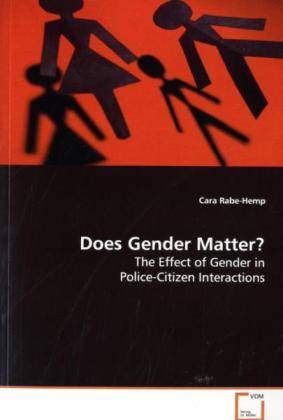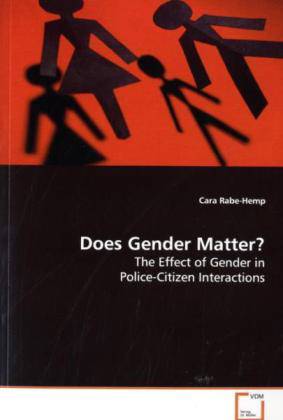
- Afhalen na 1 uur in een winkel met voorraad
- Gratis thuislevering in België vanaf € 30
- Ruim aanbod met 7 miljoen producten
- Afhalen na 1 uur in een winkel met voorraad
- Gratis thuislevering in België vanaf € 30
- Ruim aanbod met 7 miljoen producten
Zoeken
Does Gender Matter?
The Effect of Gender in Police-Citizen Interactions
Cara Rabe-Hemp
Paperback | Engels
€ 58,45
+ 116 punten
Omschrijving
Using data from systematic social observations of police-citizen encounters, this work explores gender differences in police utilization of controlling and supporting behaviors. By assessing the impact of intervening situational and organizational factors, the study underscores the conditions under which female officers utilize different behaviors from their male counterparts. Findings suggest that women are much less likely than men to utilize extreme controlling behaviors, such as threats, physical restraint, search, and arrest. Surprisingly, the findings do not support the hypothesis that women are more likely than men to use supporting behaviors or to de-escalate discordant police-citizen encounters. While unexpected, these findings are important. Simply assuming female officers manifest stereotypically feminine traits in policing tasks is clearly an overgeneralization and a simplistic conceptualization of the meaning and impact of gender in policing. The implications for female officers, policing, and future research are discussed.
Specificaties
Betrokkenen
- Auteur(s):
- Uitgeverij:
Inhoud
- Aantal bladzijden:
- 156
- Taal:
- Engels
Eigenschappen
- Productcode (EAN):
- 9783639179804
- Verschijningsdatum:
- 16/07/2009
- Uitvoering:
- Paperback
- Formaat:
- Trade paperback (VS)
- Afmetingen:
- 152 mm x 229 mm
- Gewicht:
- 235 g

Alleen bij Standaard Boekhandel
+ 116 punten op je klantenkaart van Standaard Boekhandel
Beoordelingen
We publiceren alleen reviews die voldoen aan de voorwaarden voor reviews. Bekijk onze voorwaarden voor reviews.











